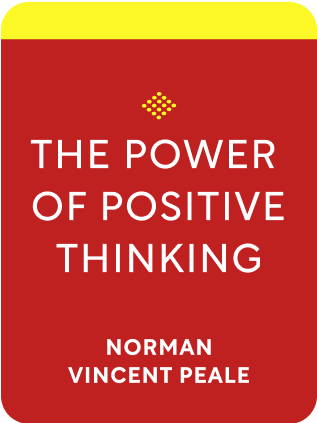

This article is an excerpt from the Shortform book guide to "The Power of Positive Thinking" by Norman Vincent Peale. Shortform has the world's best summaries and analyses of books you should be reading.
Like this article? Sign up for a free trial here .
How do you deal with heartache? What is the most effective way to cope with emotional pain?
Grief, sorrow, and other forms of heartache and inner suffering are part of being human. It happens at some point to everyone and there is no surefire way to avoid emotional hurt altogether.
Here, Norman Vincent Peale, the author of The Power of Positive Thinking, shares his advice on how to cure heartache.
Curing Heartache
Peale once encountered a young man who was having trouble rising above his sorrow. He asked for a “prescription for heartache.” He gave him the following advice on how to cure his heartache:
- Get back to normal. If you’re in a bad situation, get out of it and return to your normal life and its activities. Being as normal and natural as possible helps to cure heartache. For example, if a loved one has died, don’t avoid the places you used to go together.
- Get physically active. Avoid the temptation to sit and brood.
- Get busy with a worthwhile project. Make sure you stay busy with something creative to occupy your time (not just partying and drinking).
- Feel your grief. It’s natural and helpful to cry when sorrow comes. Trying to bottle up your grief and not show emotion is unhealthy. But you can’t let crying and grieving get out of control, either. It’s not healthy for it to become a habitual process.
- Turn to God. On a more spiritual level, curing your heartache requires turning to God with faith and trust. You don’t have to carry your burden of sorrow alone; putting yourself in the presence of God is healing and soothing.
Dealing With a Death of a Loved One
There is no greater heartache than the death of a loved one. A spiritual way to help live with this heartache is to gain an understanding of the deeper meaning of life and death. When you carry with you the faith that all life is connected—and when you die, you merely continue your journey in another form—you gain a deep peace and comfort about the loss of a loved one.
For Peale, coming to the realization that there is no death—that “here” and “hereafter” are all part of one universe—brought him great comfort. This philosophy doesn’t take away the sadness when a loved one dies, but it will help lift and dissolve grief. Knowing deep down that you haven’t truly lost your loved one brings peace.
This philosophy is based on teachings from the Bible that say we’ve never seen or heard anything that can compare with the wonders God prepares for those who love and put their trust in him. 1 Corinthians 2:9 says: “The eye hath not seen, nor ear heard, neither have entered into the heart of man, the things which God hath prepared for them that love him.”
This passage seems to promise that we’ll be reunited with lost loved ones and speaks to the idea that those who have died are still living on “the other side.”
Peale adamantly believed that life continues after death; dying is merely changing the form of our life experience. The idea of the soul living on beyond death is discussed in areas like parapsychology, precognition and telepathy.
Peale feels that science will one day substantiate the idea of life after death, but the many people he has spoken with who have had near-death experiences, or who have recounted dying loved ones who seem to see people who have already died, offer all the evidence he needs. The experiences described to him have convinced him that our loved ones still exist, they aren’t far from us, and we’ll be reunited with them.
When Thomas Edison was dying, his wife recalled him whispering, “It is beautiful over there.” He was a scientist and a very factual man. Other great minds have come to the same conclusion. American scholar William James said the brain is a medium of the soul’s existence. When we die, our new brain will be able to reach untapped areas of understanding.
Euripides and Socrates both felt the next life would be on a much greater level. Socrates even said, “No evil can befall a good man in this life or next.”
A scientist named Natalie Kalmus shared a story about the death of her sister Eleanor that illustrates this idea. Her dying sister asked that Natalie not allow the doctors to give her pain medication because she wanted to be fully aware of every sensation as she approached death, very confident that she was entering eternal life.
When she was close to death, she called out the names of those she saw—loved ones who had passed before her. One was a cousin who had died the previous week, and Eleanor didn’t even know this cousin had died.
Peale has heard numerous similar stories about this kind of phenomenon, leading him to believe that loved ones who are called out by name are actually seen by the dying person. Those people are present, perhaps in a different dimension or frequency cycle.
Think of an electric fan. You can see all the blades when it’s off or on low speed. At high speed, however, the blades seem transparent. Perhaps a person entering into a higher frequency gets glimpses of a new reality.

———End of Preview———
Like what you just read? Read the rest of the world's best book summary and analysis of Norman Vincent Peale's "The Power of Positive Thinking" at Shortform .
Here's what you'll find in our full The Power of Positive Thinking summary :
- That there is no problem or obstacle you can’t overcome with faith, positive thinking, and prayer
- The practical techniques of applied Christianity
- How to take control of the events in your life rather than be directed by them







I have read The Power of Positive Thinking and Enthusiasm makes a Difference as I bought them during the 90’s.
I have faith in these books and also Dr. Norman Vincent Peale. Problem is I was and still the only one reading those books in our family. Nowadays I just wish to spread his teachings to people I know especially to my siblings as we are getting older very fast. If people only realize how wonderful the books and Mr. Peale are.